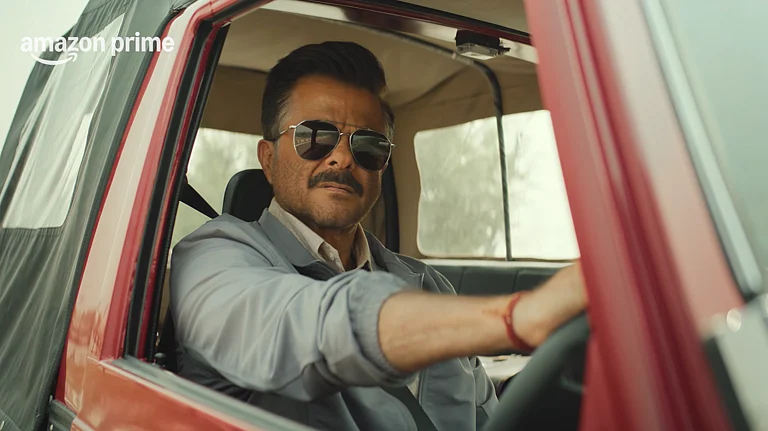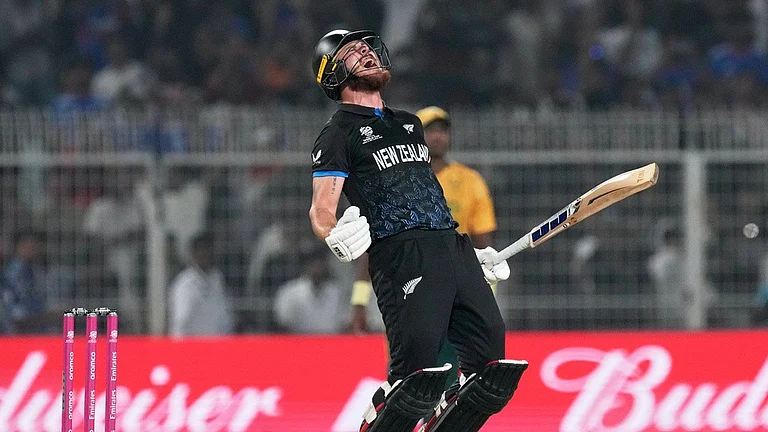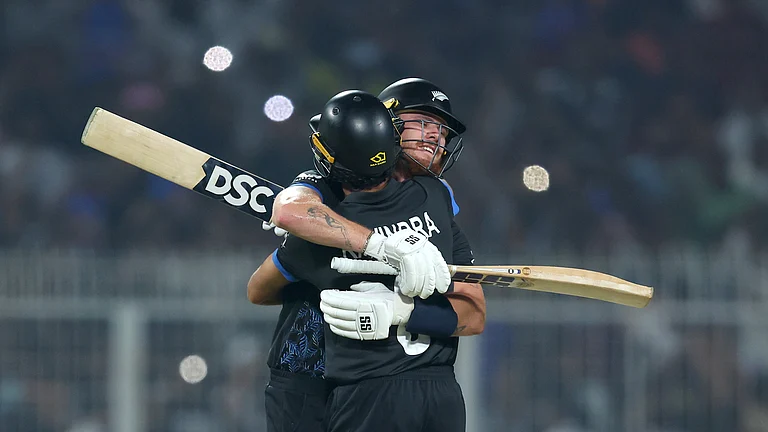As the West seeks ways to engage with Russia following the Ukraine invasion, recall the friendship that once brought the two Blocks closer during a crisis and changed the world. It was the mid-1980s. Another country was under Soviet occupation. Afghanistan had become the theatre of the cold war, with the US supporting the Mujahideen against the Soviets. Amid this, Mikhail Gorbachev visited England at the invitation of Prime Minister Margaret Thatcher in December 1984. He was just a Politburo member then, but the astute woman immediately sensed that the visitor was of a different chip. She invited him and his wife Raisa to her country residence, which instantly led to a friendship unprecedented in the West-Soviet relations. Thatcher soon famously declared that here was the man “one could do business with”. A series of quick negotiations followed. The Berlin Wall was dismantled in less than five years. The Cold War was over.
Such were the unexpected yields that Gorbachev’s biographer Gail Sheehy later wrote that “not even the Queen of the West could have anticipated the turn their discussions would take”. Years later Gorbachev recalled that a “special relationship was born” during the December meeting that “contributed to a change in the atmosphere between our country and the West and to the end of the Cold War.”

***
Politics is all about a public display of raw emotions. A gesture gains power when a friend’s memory is added to it. On the way to the prison after her surrender before the police in February 2017, VK Sasikala stopped at Jayalalitha’s memorial in Chennai, prayed with folded hands and then stunned the onlookers with her “triple vow of revenge”. She thrice slammed the memorial slab with her right palm, with multiple emotions overflowing on her face. They were once the most powerful women in Tamil Nadu, the only secret keepers of each other. Amma had died months before, Sasikala’s own career seemed almost over, but the embers of their friendship were still smouldering.
Death also brings closer two people who were not always on the same divide. Jawaharlal Nehru and Subhas Bose had ideological differences, but Kamala Nehru’s prolonged illness and death brought Bose closer to Nehru, albeit for a short phase. Bose tended to her in her last days, even organizing the final rites. It was also the period when Bose himself was falling in love with his future wife, an Austrian named Emilie Schenkl. Kamala’s death led to tenderness between the two men that was also reflected in Bose’s letters to Nehru that now ended with “Love” instead of “yours” or “yours affectionately”.

Jacques Derrida had such moments in mind when he wrote that the “great canonical meditations on friendship…belong to the experience of mourning, to the moment of loss—that of the friend or friendship.”
Some of the greatest obits of world literature were written after a friend passed away. In a moving obit after Thatcher’s death, Gorbachev remembered the comfort they had instinctively achieved. “She even took off her shoes and made herself comfortable in her armchair. It was all happening by an open fire. It was, after all, December – and a harsh one at that. Yet it was warm inside and as we went along, the atmosphere was improving.”
It was a rare instance in the 20th century, marked by treachery and betrayals, of two tall world leaders from opposing streams forming an affinity at the first glance.
The previous century also saw a friendship that pulled down Batista’s reign in Cuba and dreamt of bringing the revolution to the entire Latin America. The bond between Che Guevara and Fidel Castro, a doctor and a lawyer, remains the hallmark of the Communist lore. The Cuban died five decades after the execution of his Argentinean comrade but when Castro’s last journey began, his ashes were first taken to Guevara’s mausoleum in Santa Clara. The two friends had been united in death.
Notably, just around the time the two enabled the first Left government in the Western hemisphere, two young men on the other side of the planet came together for a mission that would bring India’s first Rightwing government over four decades later. Their friendship began in the early 1950s, helped build a mighty political organization, lead a cultural movement and conquered the Indian psyche, as LK Advani’s Rath Yatra transformed Indian politics. When BJP’s convention began in November 1995, AB Vajpayee had been sidelined and the then party president Advani was expected to declare himself the prime ministerial candidate for the upcoming Lok Sabha elections. But he stunned the party by declaring the candidature of his old friend. None could believe it, not even Vajpayee who then rose up with each passing year.
Indian politics has seen several friendships after Independence but most of them, like the one between Lalu Yadav and Nitish Kumar, are fraught with conflicts or betrayals. In contrast, the freedom movement is a treasure trove of friendships, a period when a vast range of stalwarts with diverse ideas and ideologies formed intimate and affectionate bonds, engaged each other in public debates that shaped the movement as well as the nation. Be it the bond between Gandhi and Tagore or between Nehru and Patel. And then there was a bond with immense but unfulfilled possibilities, and hence may torment future historians for what it could not be. Despite their divergent views on various issues, Nehru and Bose were brothers-in-arms and could have been far closer. What prevented them? The “limiting point in the relationship”, Rudrangshu Mukherjee notes in Nehru and Bose: Parallel Lives, was that the Bengali believed that “he and Jawaharlal could make history together. But Jawaharlal could not see his destiny without Gandhi.” A sapling couldn’t turn into a blooming plant because it remained under the shadow of a banyan tree.

Friends also save you from political disasters, and perhaps nothing epitomizes this than the intervention C Rajagopalachari made at a crucial juncture of MK Gandhi’s life. Gandhi called the Tamilian his conscience-keeper, who also became the father-in-law of his son Devdas Gandhi. The episode related to a woman Gandhi called his ‘spiritual wife’. During his Lahore visit in October 1919, Gandhi stayed with Rabindranath Tagore’s niece Saraladevi Chaudhurani, a singer and writer. By then Gandhi’s vow of celibacy was in its 13th year but, Ramachandra Guha wrote in his biography of the Mahatma, he was immediately “enchanted with, and by Saraladevi”. Gandhi was in Lahore again soon, and wrote to his nephew Maganlal that “Saraladevi has been showering her love on me in every possible way”. She began to feature prominently in Young India. They exchanged regular letters. “You still continue to haunt me even in my sleep,” Gandhi wrote to her. The bond “came very close to” be “consummated sexually” until the Congress rushed to Rajagopalachari, who eventually managed to convince Gandhi to withdraw as it would bring him “unspeakable shame and death”.
In the previous century, a German had gone even further. We know that Friedrich Engels enabled, promoted and glowingly reviewed the works of Karl Marx. Few know that to save his friend’s public image Engels even donned the fatherhood of an illegitimate child borne out of Marx’s union with his family maid Helen Demuth.
**
That said, politicians have more aide than friends. Even when they are friends, like Jayalalitha and Sasikala, it’s often an unequal relationship. Or they find friends elsewhere. Indira Gandhi had several close aides but not many know that she had found a lifelong friend in American scholar Dorothy Norman, with whom she had a fascinating correspondence for over three decades till her death. “I can tell you things which I wouldn’t dream of telling anyone,” Indira once wrote to her. She unveiled her heart in these letters, but no one could get a wind of their exchanges before Norman published Indira Gandhi: Letters to an American Friend 1950-1984 after her death. The world then came to know that the woman who was to be termed as a “dumb doll” later had been writing as early as in 1950 to her American friend about her marital crisis and her growing “sense of loneliness and isolation”. A few years later, she wrote how “deeply unhappy” she was in her “domestic life” and how she had “missed the most wonderful thing in life, having a complete and perfect relationship with another human being”.
Norman, who sent her records of Beethoven, had become her secret keeper.
The friendship also reveals a complicated truth that Indira’s biographer Inder Malhotra tells us. From Feroz Gandhi’s death in 1960 to Nehru’s death four years later, she had been writing to Norman about the “intense fatigue” and “dark despair” she had been facing, and yearned for “privacy and anonymity”. She even wanted to buy a flat in London, abandon politics and shift there.
Does it sound credible? Was the crown really thrust upon her? After all, soon after becoming the Congress president in 1959, Indira had pushed her father to dislodge the Left government in Kerala. Malhotra comes to her defence. Unless these letters amounted to a “carefully planned fraud to be perpetrated on historians a quarter of a century afterwards,” Malhotra wrote, “the conclusion is inescapable that the one thing Indira did not want in June 1964 was the tenancy of the room at the top in India’s power structure.”
But one can read another truth in her words. We often hide certain insecurities from ourselves. The anxieties that are visible to the world, but we don’t, perhaps cannot, admit it to ourselves. We insulate ourselves from our own cruelties. Indira, after all, during the Emergency years, had consistently stated that she never wanted power, that her love for her people was the sole motive to suspend democracy.
The delusions we share with our friends are the ones we want our soul to believe in. We know that nobody trusts us, but we still want to be trusted, to be loved. And friends come to our rescue.
Friends, then, are the keepers of our secrets, our conscience—and our delusions.






















